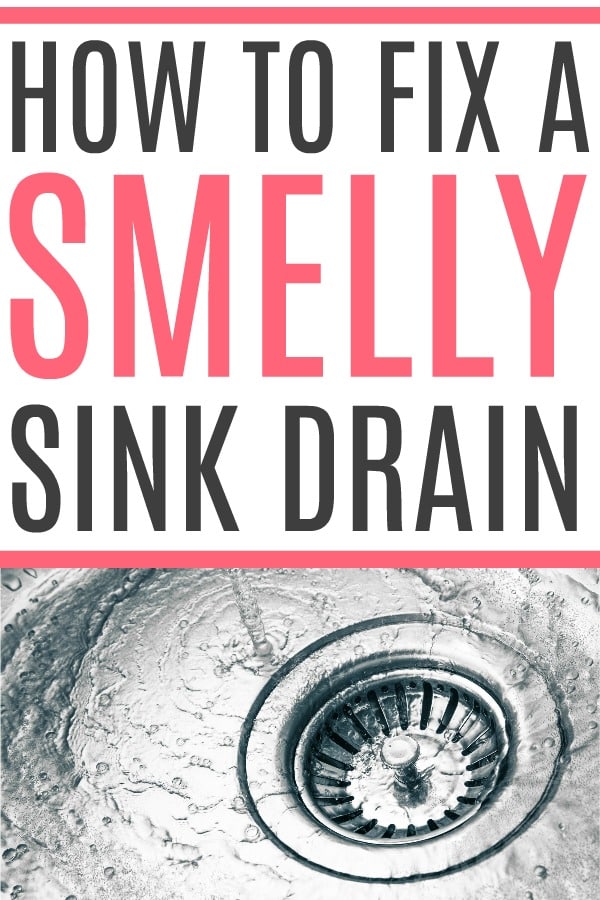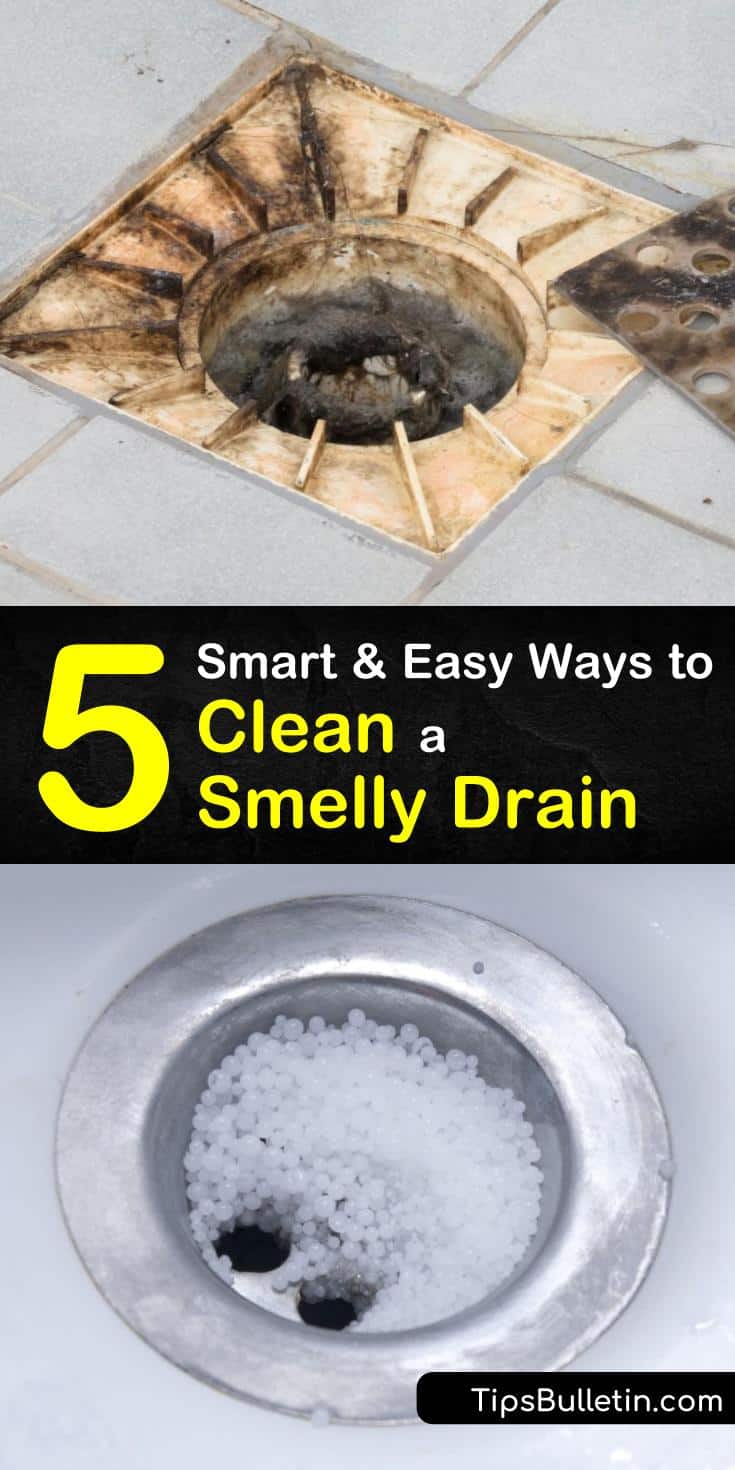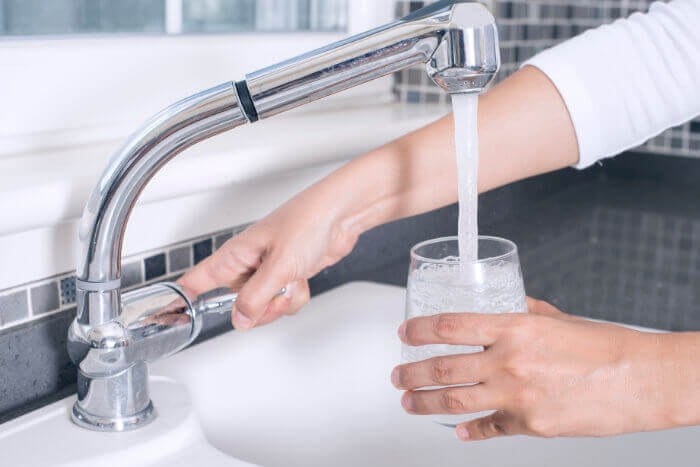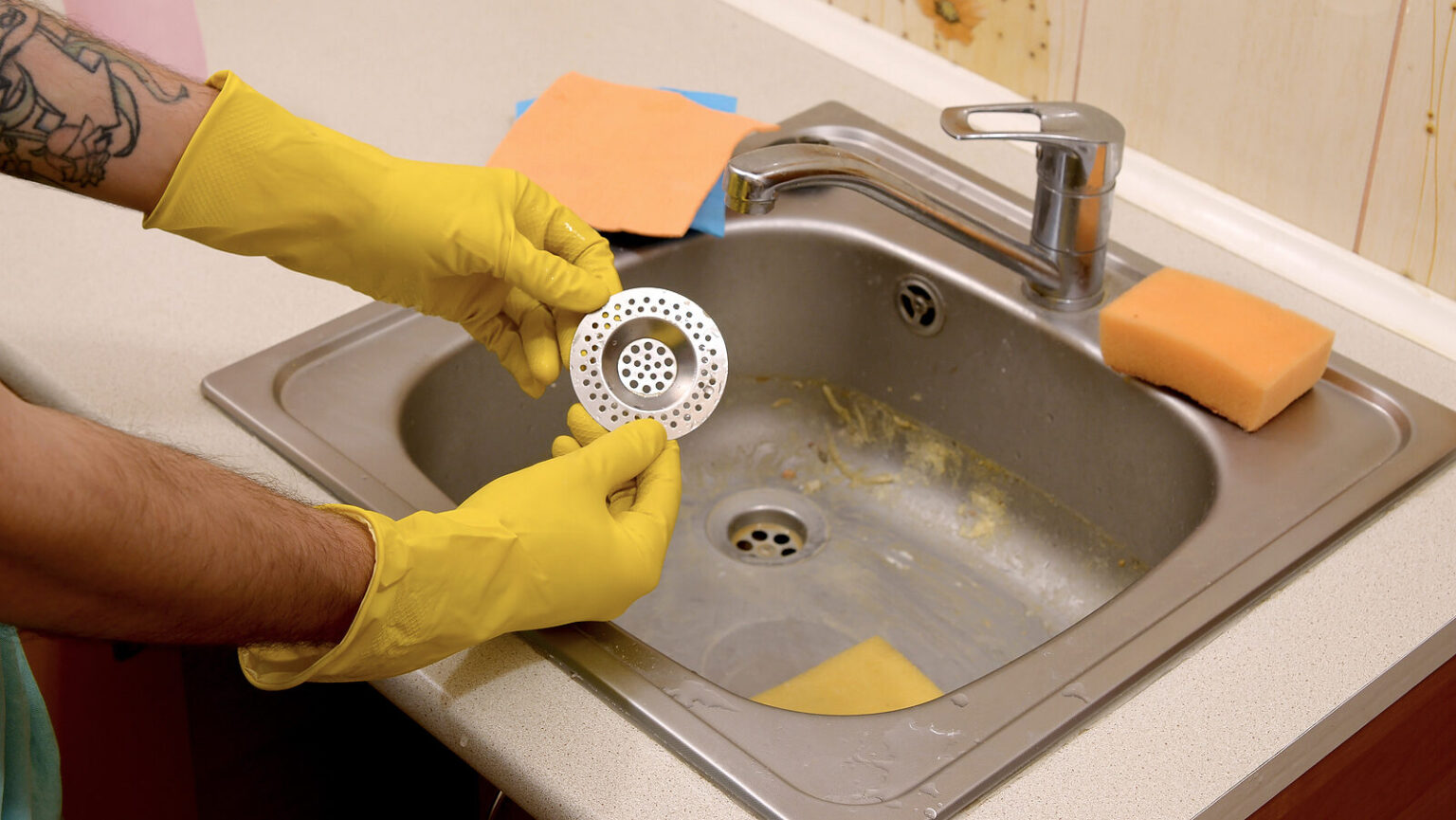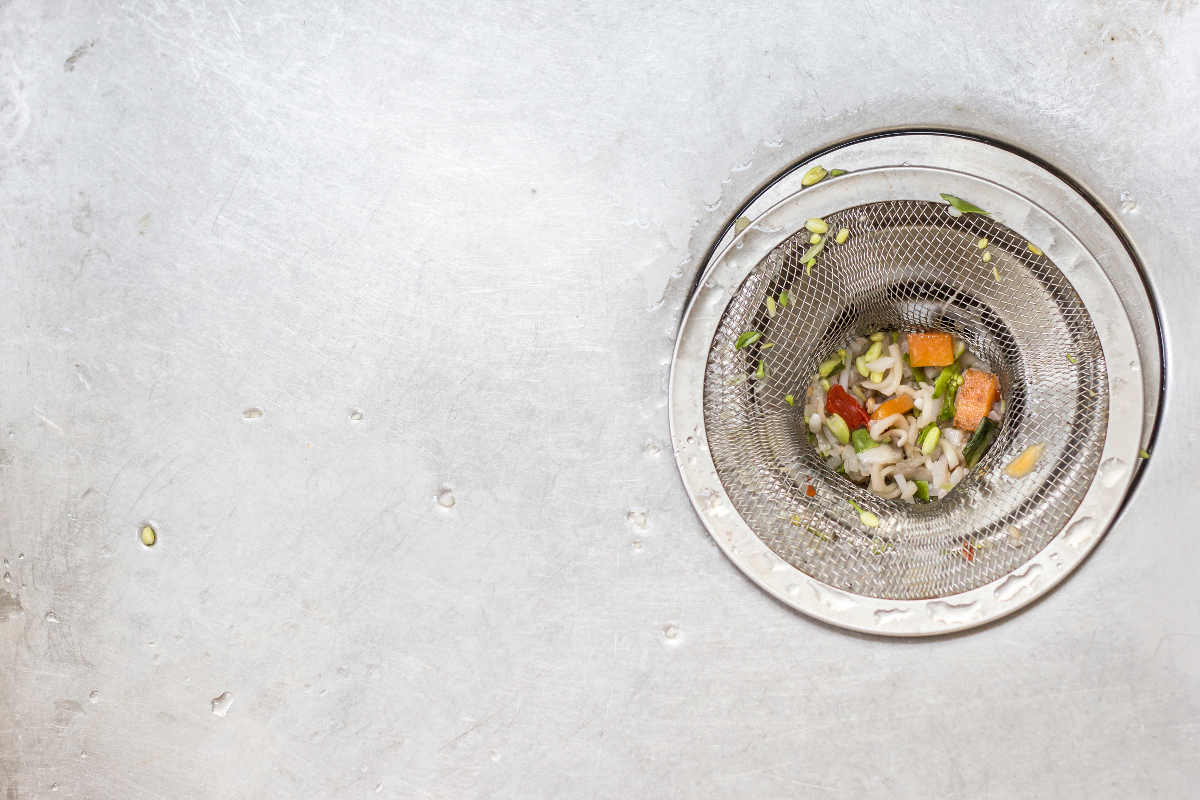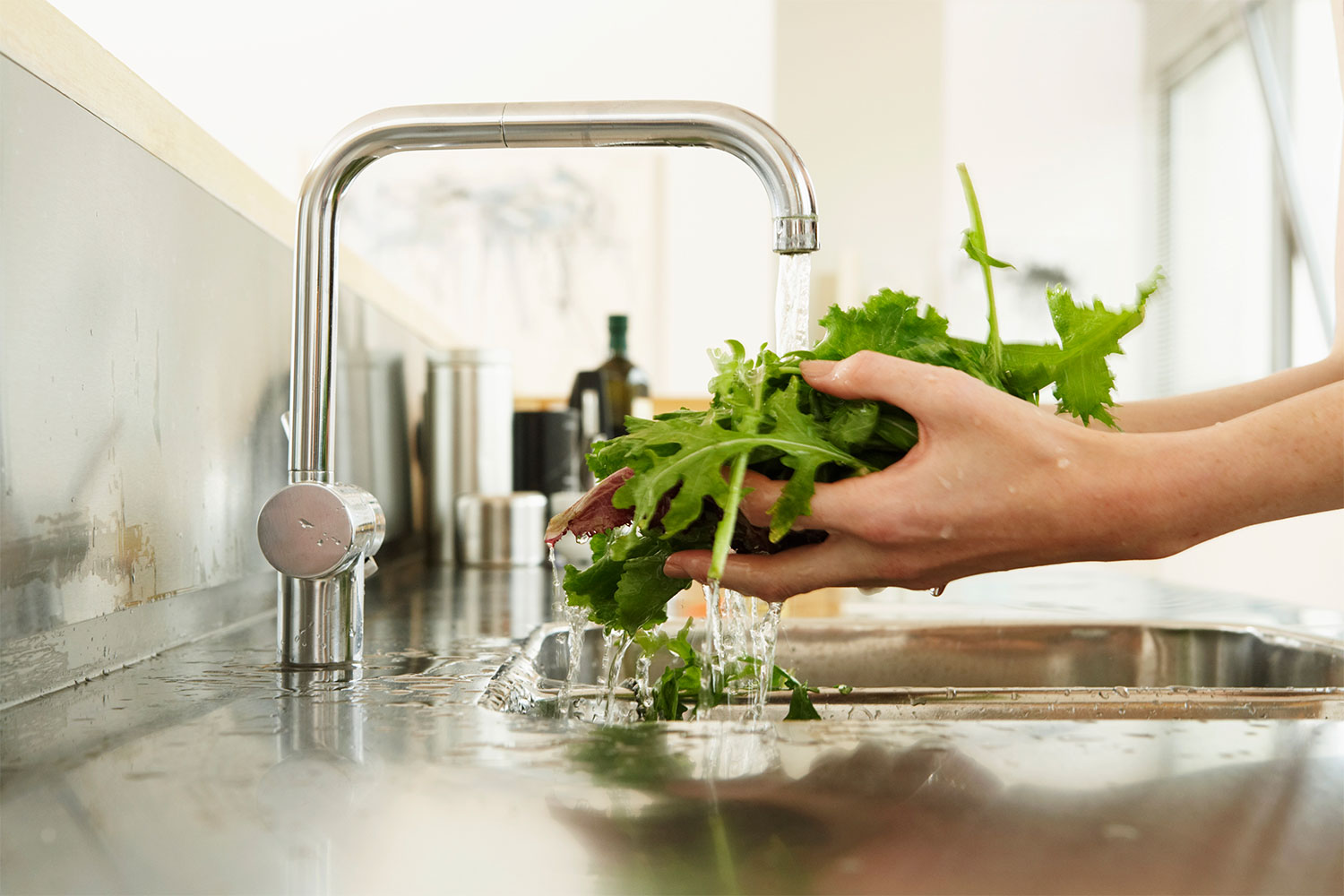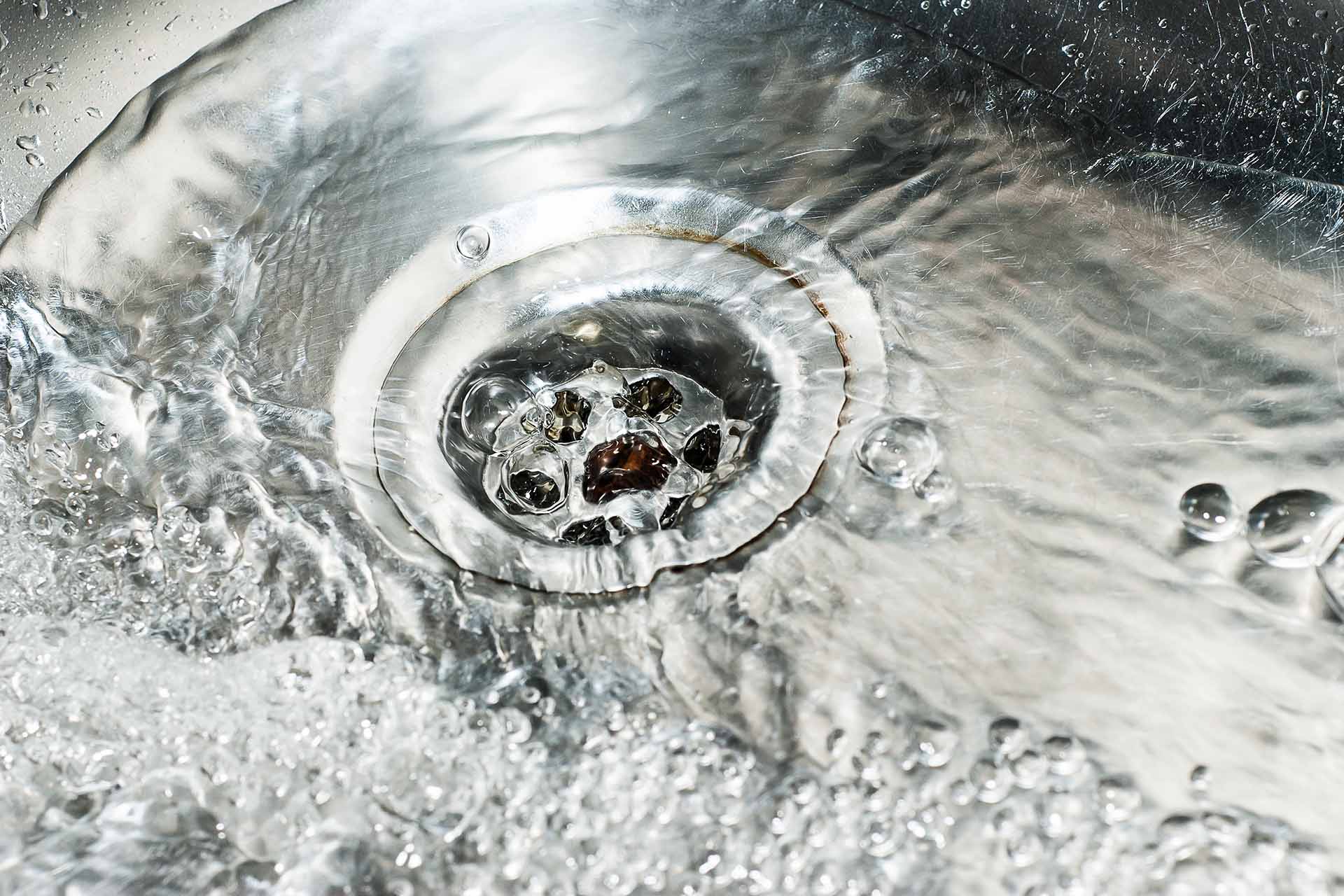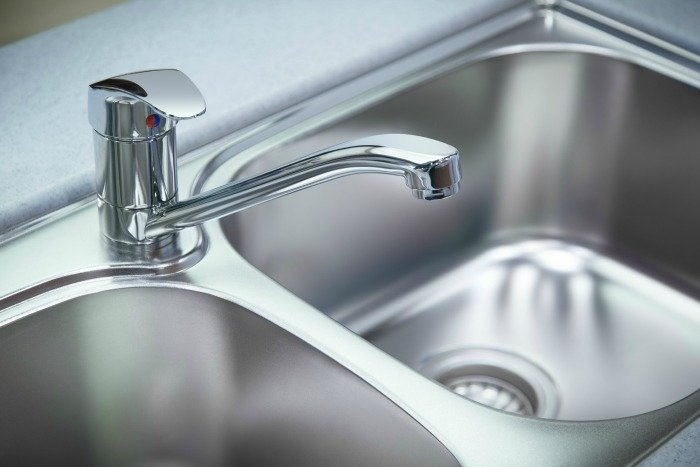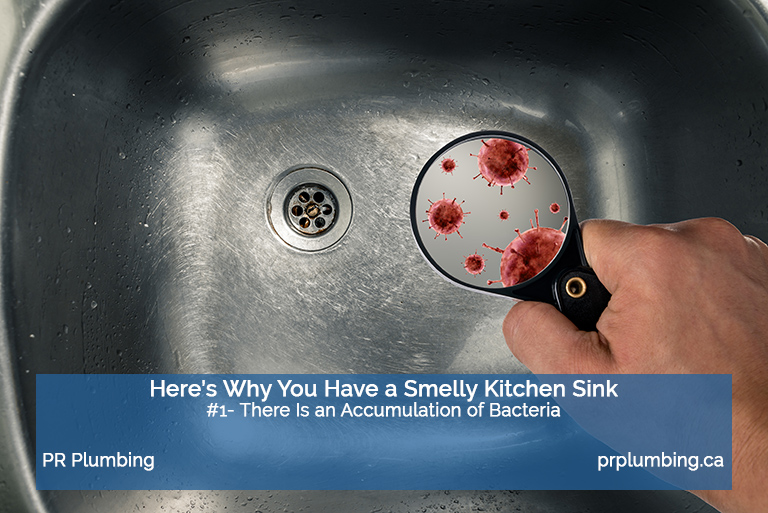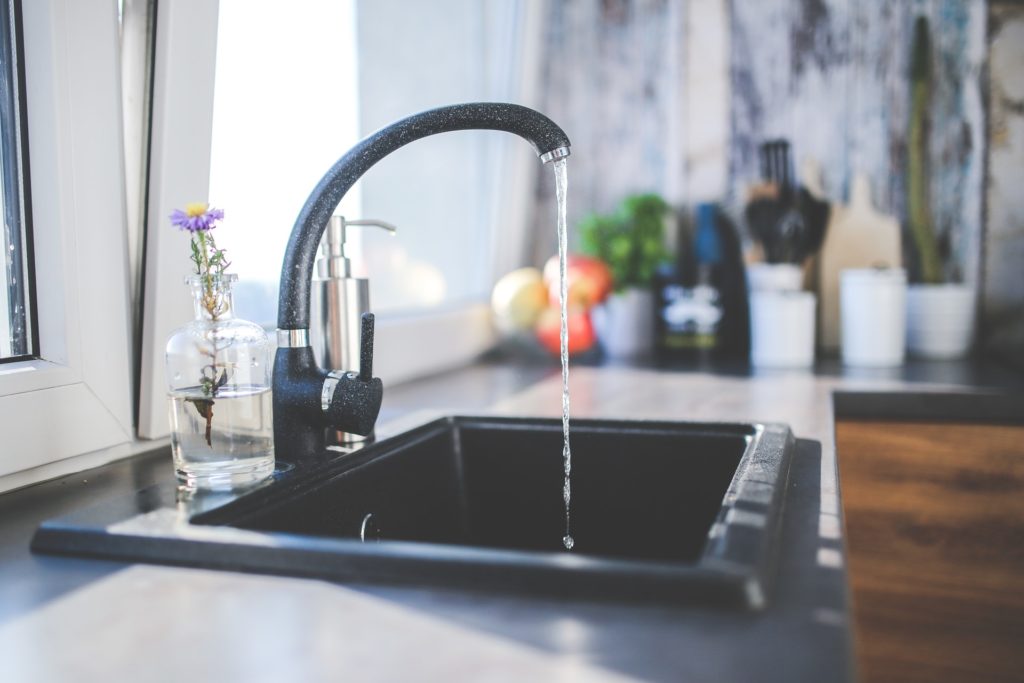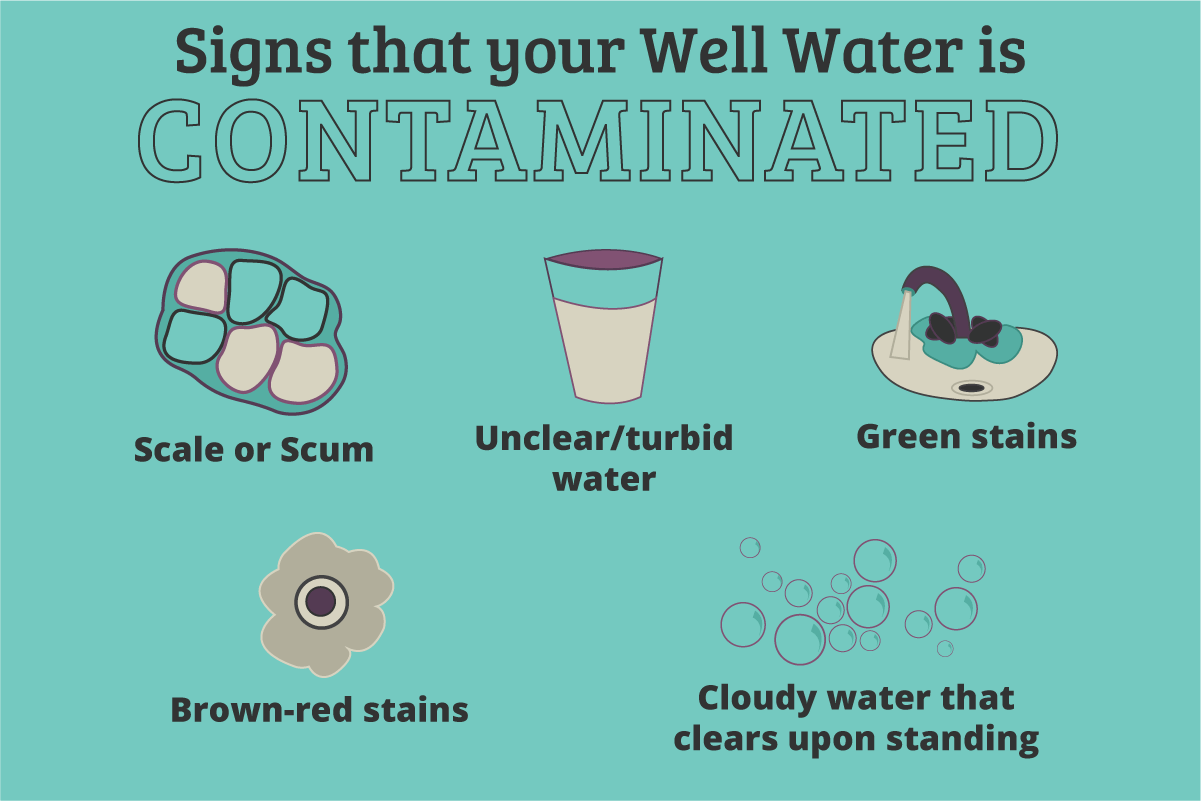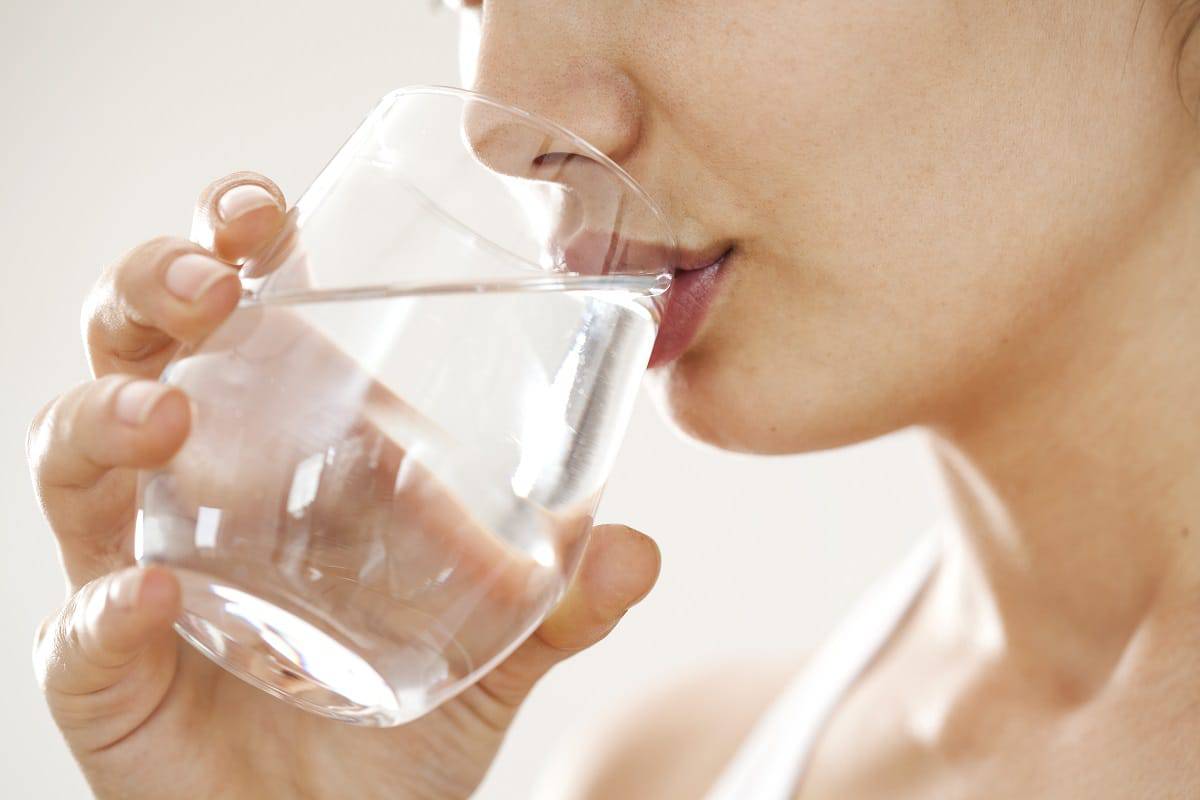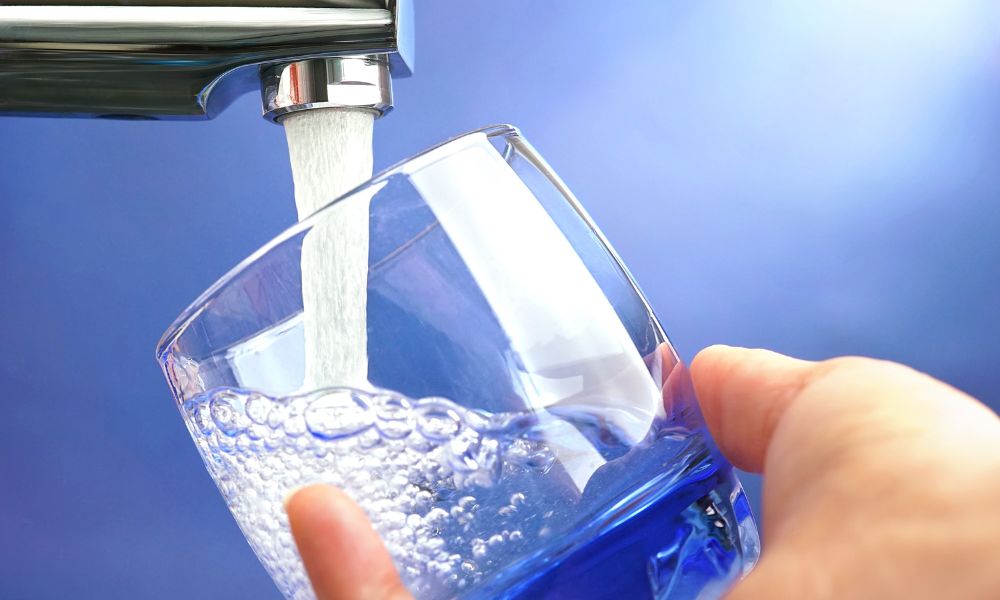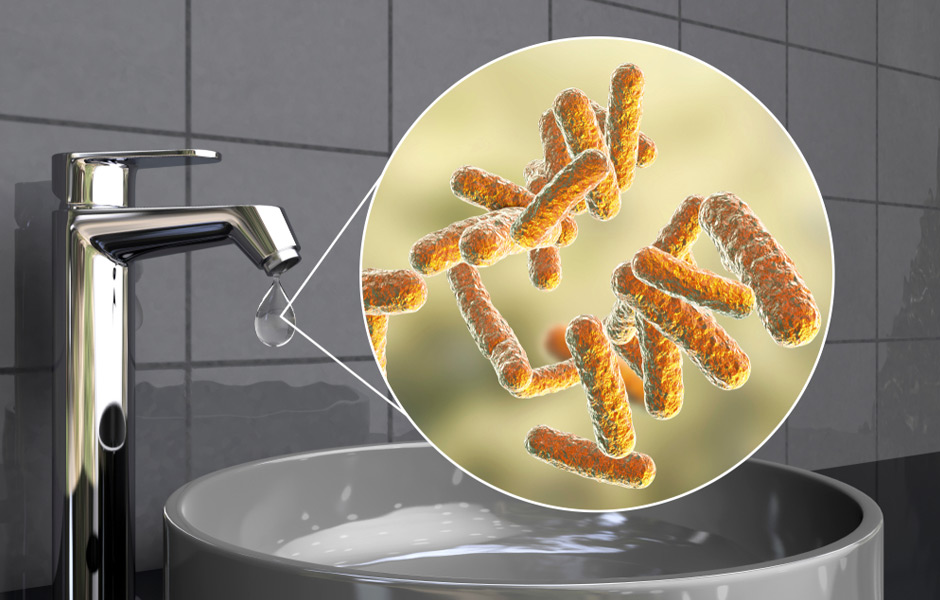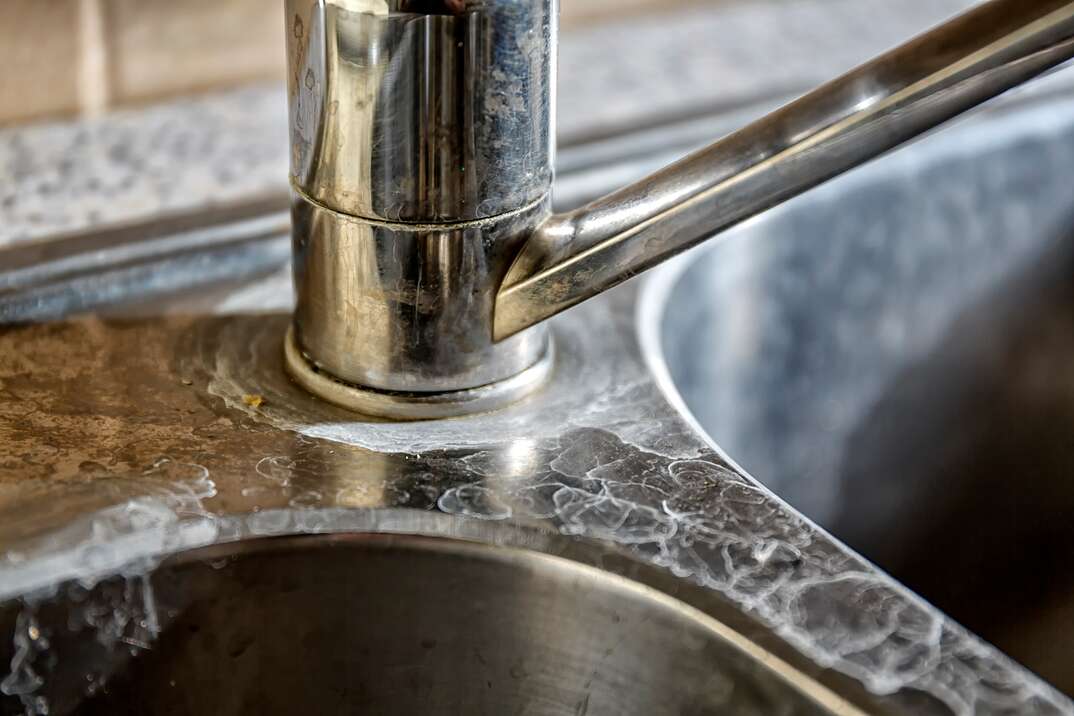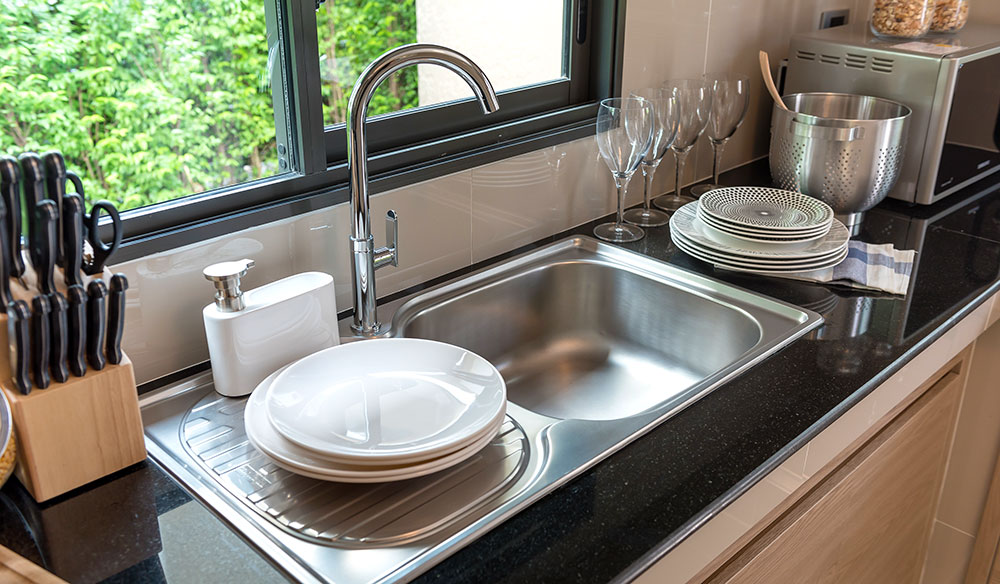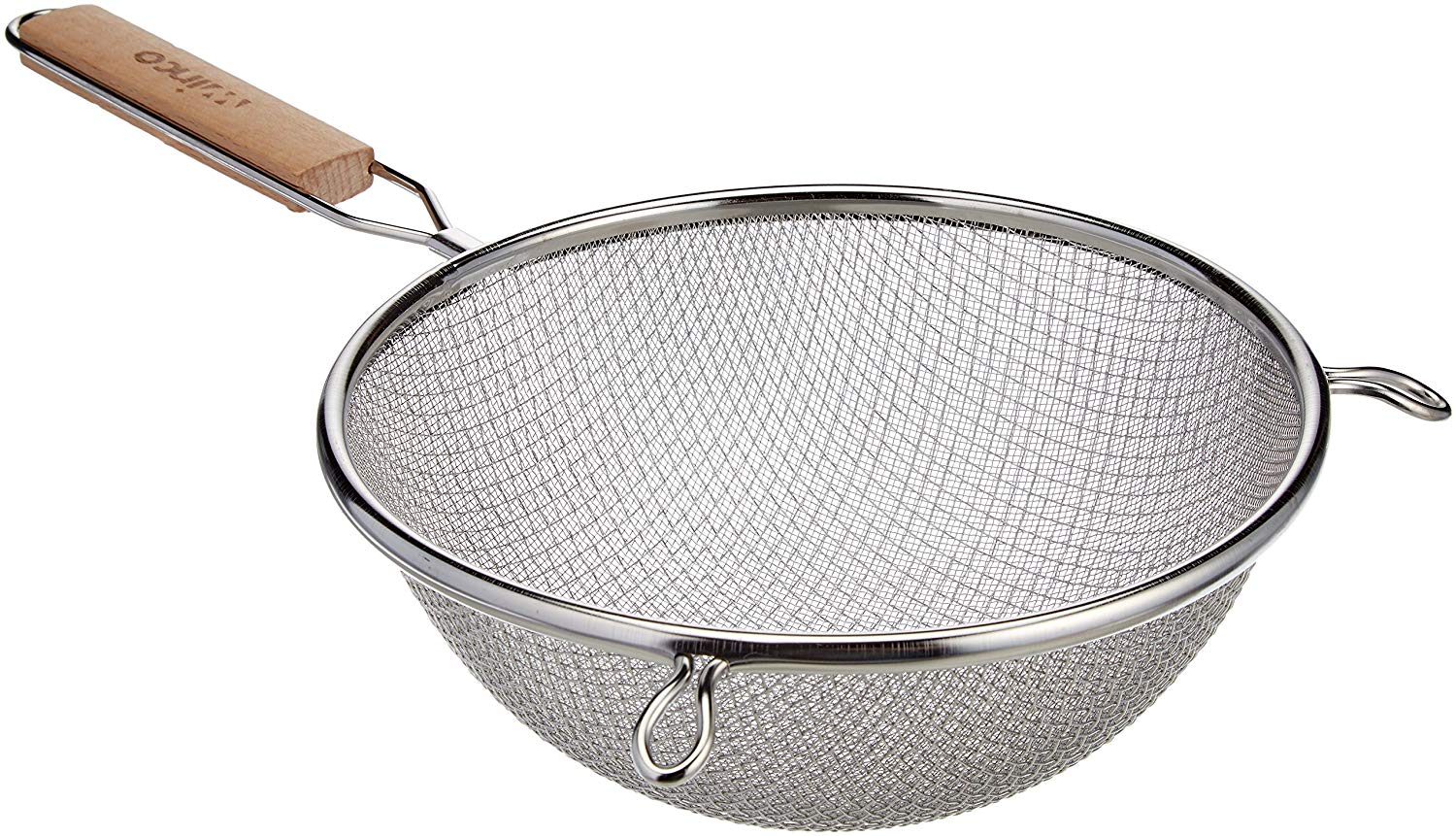If you've noticed a foul odor coming from your kitchen sink, you're not alone. Many homeowners experience this problem, and it can be quite unpleasant. But what exactly causes this smelly water from the kitchen sink? Let's take a look at some of the most common reasons. One of the main causes of smelly water from the kitchen sink is bacteria growth. Bacteria thrive in damp and dark environments, making the pipes under your sink the perfect breeding ground. As they multiply, they release a gas that can cause a rotten egg smell. This can be particularly common in homes with older plumbing systems. Another cause of smelly water from the kitchen sink is the buildup of organic matter in the pipes. This can include food particles, grease, and other debris that can get stuck in the pipes over time. As the organic matter decomposes, it can produce a foul odor that can seep into your water supply. Lastly, if you have hard water, it can also contribute to the smelly water from your kitchen sink. Hard water contains high levels of minerals, such as calcium and magnesium, which can react with bacteria and organic matter to produce a sulfur-like odor.Causes of Smelly Water from Kitchen Sink
Now that you know some of the causes of smelly water from the kitchen sink, you're probably wondering how to get rid of it. The good news is that there are several solutions you can try at home. The first step is to clean out your kitchen sink drain. This can help remove any buildup of food particles or organic matter that may be causing the odor. You can use a homemade solution of baking soda and vinegar to flush out your pipes and eliminate any bacteria or debris. You can also try using a drain snake to remove any clogs in your pipes. This can be particularly effective if the smell is coming from a specific area of your kitchen sink, such as the garbage disposal. If these DIY solutions don't work, you may need to call a professional plumber. They can use specialized tools and techniques to clean out your pipes and ensure that the odor is completely eliminated.How to Get Rid of Smelly Water from Kitchen Sink
If you prefer to use natural remedies, there are a few options you can try to get rid of smelly water from your kitchen sink. One of the most popular is to use lemon or orange peels. Simply grind them up in your garbage disposal to release their natural oils, which can help neutralize any unpleasant odors. You can also try pouring a mixture of hot water and baking soda down your drain. This can help break down any buildup and eliminate any bacteria that may be causing the smell. Another option is to use a mixture of vinegar and essential oils, such as peppermint or tea tree oil, to freshen up your pipes. Just remember, these home remedies may only provide temporary relief. If the smell persists, it's best to call a professional to address the root cause of the problem.Home Remedies for Smelly Water from Kitchen Sink
In addition to bacteria growth, organic matter buildup, and hard water, there are other common reasons for smelly water from the kitchen sink. One of these is a damaged or faulty sewer line. If your sewer line is cracked or leaking, it can allow sewage to seep into your water supply, causing a foul odor. Another reason could be a malfunctioning water heater. If your water heater is old or hasn't been properly maintained, it can lead to bacterial growth and an unpleasant smell in your water. Regular maintenance of your water heater can help prevent this issue. You may also have a problem with your plumbing vents. These vents help regulate air pressure in your pipes and ensure that waste water flows properly. If your vents are blocked or damaged, it can cause a backup of sewage and result in a smelly kitchen sink.Common Reasons for Smelly Water from Kitchen Sink
If you're experiencing smelly water from your kitchen sink, there are a few DIY solutions you can try before calling a professional. One option is to install a water filter. This can help remove any impurities and odors from your water supply. You can also try flushing out your pipes with hydrogen peroxide. This can help kill any bacteria and neutralize any odors. Another option is to use activated charcoal filters, which can absorb impurities and improve the taste and smell of your water. It's also important to regularly clean your kitchen sink and disposal to prevent any buildup of organic matter that can lead to smelly water. This can also help prevent future clogs and maintain the overall hygiene of your kitchen.DIY Solutions for Smelly Water from Kitchen Sink
If the DIY solutions aren't working or you're experiencing recurring issues with smelly water from your kitchen sink, it's best to call a professional for help. A plumber can perform a thorough inspection of your plumbing system and identify the root cause of the problem. They may also recommend services such as hydro jetting, which uses high-pressure water to clear out your pipes and remove any buildup. They may also suggest installing a water softener to help combat hard water and prevent future odor issues. Remember, it's always best to address the problem early on to prevent any further damage and ensure the safety of your water supply.Professional Services for Smelly Water from Kitchen Sink
The best way to deal with smelly water from your kitchen sink is to prevent it from happening in the first place. Regular maintenance of your plumbing system is key to preventing any issues that can lead to unpleasant odors. Make sure to clean your kitchen sink and disposal regularly, and avoid pouring grease and other food waste down your drain. You should also have your pipes inspected and cleaned by a professional at least once a year to ensure they are functioning properly. It's also important to address any plumbing issues as soon as you notice them. Ignoring a small leak or clog can lead to bigger problems down the line, including smelly water from your kitchen sink.Preventing Smelly Water from Kitchen Sink
Aside from a foul odor, there are other signs that your kitchen sink water may be contaminated. If you notice a change in the color or taste of your water, it's important to have it tested by a professional. You may also experience stomach issues or other health problems after drinking or using water from your kitchen sink. This can be a sign of bacterial contamination, and it's important to address the issue immediately to prevent any further health risks. If you have any concerns about the quality of your kitchen sink water, don't hesitate to contact a professional for testing and potential solutions.Signs of Contaminated Water from Kitchen Sink
Smelly water from your kitchen sink can be more than just unpleasant – it can also pose health risks. Bacteria and other contaminants in the water can cause stomach upset, diarrhea, and other illnesses, particularly in young children and those with weakened immune systems. In addition, inhaling the gases from smelly water can also lead to respiratory problems. It's important to address the issue promptly to prevent any potential health risks for you and your family. Regular maintenance and prompt attention to any plumbing issues can help ensure that your kitchen sink water is safe and healthy to use.Health Risks of Smelly Water from Kitchen Sink
The key to preventing smelly water from your kitchen sink is regular maintenance. This includes cleaning your sink and disposal, checking for any leaks or clogs, and having your pipes inspected and cleaned by a professional on a regular basis. Regular maintenance can also help prevent other plumbing issues, such as leaks and clogs, which can lead to costly repairs down the line. It's important to invest in the upkeep of your plumbing system to ensure the safety and quality of your water supply. By following these tips, you can eliminate smelly water from your kitchen sink and enjoy clean and fresh water for all your cooking and cleaning needs.Importance of Regular Maintenance for Kitchen Sink Water
The Culprit: Bacteria Buildup

The Cause of the Unpleasant Odor
 One of the most common reasons for
water from the kitchen sink smelling
is due to the buildup of bacteria in the pipes. Over time, food particles, grease, and other organic matter can accumulate in the drains and create a breeding ground for bacteria. As these bacteria break down the waste, they release foul-smelling gases, causing the unpleasant odor to emanate from your sink.
One of the most common reasons for
water from the kitchen sink smelling
is due to the buildup of bacteria in the pipes. Over time, food particles, grease, and other organic matter can accumulate in the drains and create a breeding ground for bacteria. As these bacteria break down the waste, they release foul-smelling gases, causing the unpleasant odor to emanate from your sink.
How to Get Rid of the Smell
 Now that we know why the water from your kitchen sink may be smelling, let's talk about how to get rid of it. The first step is to thoroughly clean your sink and drains. Use a mixture of hot water and
vinegar
to flush out any debris and kill off the bacteria. You can also add some
baking soda
to the mix for an extra boost of freshness.
Now that we know why the water from your kitchen sink may be smelling, let's talk about how to get rid of it. The first step is to thoroughly clean your sink and drains. Use a mixture of hot water and
vinegar
to flush out any debris and kill off the bacteria. You can also add some
baking soda
to the mix for an extra boost of freshness.
Prevention is Key
 To prevent the buildup of bacteria in the future, make sure to regularly clean your sink and drains, at least once a week. Avoid pouring grease or oil down the drain, as this can create a perfect environment for bacteria to grow. Additionally, running hot water for a few minutes after each use can help flush out any potential food particles before they have a chance to accumulate.
To prevent the buildup of bacteria in the future, make sure to regularly clean your sink and drains, at least once a week. Avoid pouring grease or oil down the drain, as this can create a perfect environment for bacteria to grow. Additionally, running hot water for a few minutes after each use can help flush out any potential food particles before they have a chance to accumulate.
Call in the Professionals
:max_bytes(150000):strip_icc()/kitchen-smells-c8c99aa82ac7481b860c3b0a8feb1a32.jpg?strip=all) If the smell persists even after thorough cleaning and maintenance, it may be a sign of a larger issue. In this case, it's best to
call in a professional plumber
to assess the situation. They can determine if there is a more significant problem, such as a clog or damaged pipes, and provide the necessary repairs.
If the smell persists even after thorough cleaning and maintenance, it may be a sign of a larger issue. In this case, it's best to
call in a professional plumber
to assess the situation. They can determine if there is a more significant problem, such as a clog or damaged pipes, and provide the necessary repairs.
Don't let an unpleasant odor from your kitchen sink disrupt your daily routine. By understanding the cause and taking preventative measures, you can keep your sink smelling fresh and clean at all times.

